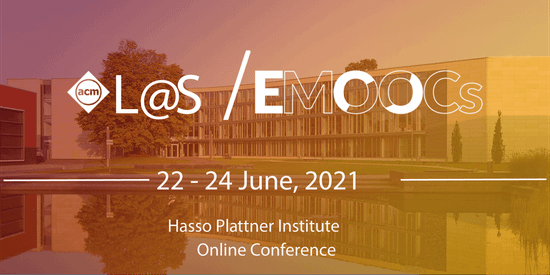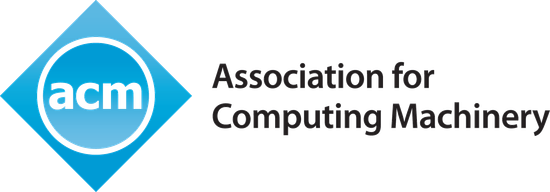
All learning institutions have been forced to transform and redesign their learning methods, moving from traditional models to hybrid or complete online models at scale. This has shown clearly and rapidly, what already works in online education and what still has a ways to go. The learnings derived from praxis and research have been explored in EMOOCs /Learning @ Scale 2021 which took place completely online from June 22 to June 24, 2021.
For more information, please visit also our official website.
语言: English
课程信息
You can look forward to an exciting program packed with keynotes, lively speeches, sessions and research talks from representatives from science, business, and politics. They provide insights on the changing role of EU, what this means for MOOCs, and the impact of digital learning in diverse environments.
EMOOCs 2021
EMOOCs 2021 brought together experts in the area of MOOCs and e-Learning in general from all European regions. In total it featured 6 tracks covering different aspects of this area and additional workshops.
The Future Track consisted of panel sessions, invited talks, and vision statements from relevant, forward-thinking figures in the field of educational technology.
The Experience Track brought together diverse stakeholders to discuss important issues, such as best practices in MOOC production processes, quality assurance, certification, and credentialing.
The Policy Track addressed the extraordinary potential of MOOCs in addressing European challenges related to the modernisation of higher education institutions as well as for coping with more general political and social issues, such as labour market challenges.
The Business Track addressed areas such as business models for MOOCs, the role of academia vs. commercially driven companies, or the integration of MOOCs into company systems.
The Health Track addressed the current potential and future challenges of MOOCs in the health sector.
The International Track took a look beyond the European borders and and particularly encourages submissions that present initiatives from Latin America, Australia, Africa or Asia.
The Workshops aimed to provide a forum for exploring and discussing emerging trends in MOOCs in a more participatory and informal way.
Learning @ Scale 2021
The L@S conference was specially interested in research addressing the urgent challenges derived from the COVID-19 pandemic. All learning institutions have been forced to transform and redesign their learning methods, moving from traditional models to hybrid or complete online models at scale. Teachers need best practices and evaluated instructional methods adapted to the new reality as a reference, and technological systems to assure quality education. Students require also guidelines and support for succeeding in these new learning environments as well as coaching and mentoring on learning strategies and self-regulation. All these solutions must also ensure access to equitable quality education towards a more inclusive society, pointed out as one of the key global challenges in the new Horizon Europe strategic plan.
In this context, and as L@S research expands, we aim for more direct measures of student learning, accompanied by generalizable insight around instructional techniques, learning habits and behaviour change, technological infrastructures, and experimental interventions that improve learning outcomes in the post-COVID-19 decade. Papers presenting ongoing work, including study designs and surveys, behavioral studies, technological solutions, aiming at understanding and discussing how the future of learning at scale will be shaped due to the COVID-19 were presented this year.
课程内容
Overview and Program:
Take a look at the exciting conference program. We look forward to your participation and the exchange with you!Opening Sessions & Closing
Keynotes
Panels
EMOOCs - Business:
Moderators: Christian Friedl (FH Joanneum Graz) and Janine Kiers (TU Delft)EMOOCs - Experience:
Session Chair: Martin Ebner (TU Graz)EMOOCs - International:
Moderators: Manoel Cortes Mendez (Class Central), José Ruiperez (University of Murcia)EMOOCs - Policy:
Moderators: George Ubachs (EADTU), Catherine Mongenet (FUN)EMOOCs - Health:
Moderators: Heini Utunen (WHO), Kerstin Ritter (Charité Berlin), Bert Arnrich (HPI)EMOOCs - HE and School Education - In German language:
Moderators: Sebastian Horndasch (HFD), Florian Sittig (HPI)L@S - Perspectives from North America:
Session Chair: Justin Reich (MIT)L@S - Perspectives from US West Coast:
Session Chair: René Kizilcec (Cornell University)L@S - Perspectives from Oceania:
Session Chair: Pedro Muñoz-Merino (UC3M)L@S - Perspectives from Europe & US:
Session Chair: Yannis Dimitriadis (Universidad de Valladolid)L@S - Perspectives from US East Coast:
Session Chair: Ken Koedinger (Carnegie-Mellon University)EMOOCs - Poster Session:
Meet and discuss with authors, presenters, colleagues, and peers.L@S - Work-in-Progress and Demos:
Meet and discuss with authors, presenters, colleagues, and peers.Workshops:
Hands-on approaches on using multimedia, working with micro content, supporting participants, and quality assurance in MOOCs.Our Sponsors
I like, I wish
订阅本课程
Learners
证书要求
- 参与证明 授予者需要至少学习了所有课程资料的百分之 1%。
欲知详情,请访问证书指南.
该课程提供者

The Hasso Plattner Institute (HPI) in Potsdam is Germany's university-based Center of Excellence for Digital Engineering (https://hpi.de). With the bachelor's degree program "IT-Systems Engineering," the joint digital engineering faculty of HPI and the University of Potsdam offers an computer science engineering program that is unique in Germany and particularly practice-oriented. The HPI School of Design Thinking, Europe's first innovation school for students modeled on the Stanford d.school, offers 240 places per year for additional study.
A pioneer among European scientific institutions, HPI launched its interactive Internet services in 2012 with the free online learning platform openHPI. Since then, it has offered free access to current university knowledge from the rapidly changing fields of information technology and innovation.

ACM, the world's largest educational and scientific computing society, delivers resources that advance computing as a science and a profession. ACM provides the computing field's premier Digital Library and serves its members and the computing profession with leading-edge publications, conferences, and career resources.